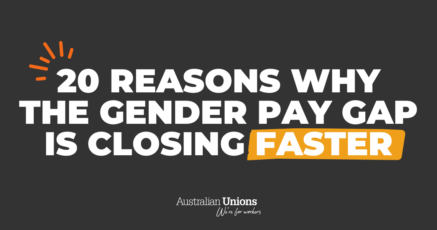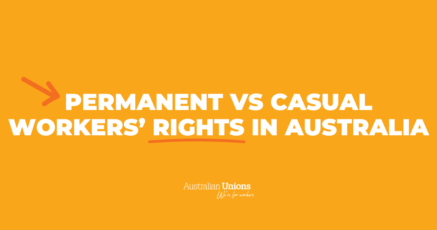As a country, we can take a major step towards making workplaces and homes free from sexual harassment and abuse. But not if a government bill passes unamended next week.
Back in March, I listened to Brittany Higgins address the March4Justice rally outside Parliament House. Her courage in telling her story on the national stage has been extraordinary, but the issues at the heart of her experience are not hers alone.
Her story is our story. It’s our mothers’ story and our grandmothers’ story. Almost two in five women and just over one in four men have experienced sexual harassment in the workplace in the past five years.
Contrary to what some commentators have said, we have more than just anger, we have solutions.
Take Respect@Work – the landmark report from sex discrimination commissioner Kate Jenkins. It’s a compelling blueprint for safer workplaces with 55 recommendations for change that are widely supported.
The Morrison Government did not respond to this report for more than a year. The national outcry over the treatment of Higgins, and all women that have come forward, the Marches4Justice, forced his hand.
But while Morrison said that he “accepted” all of the Respect@Work recommendations, he is only taking forward a handful to parliament next week. And they aren’t the most important ones.

They ignore key recommendations that extend women’s rights and employer obligations to prevent harassment.
This would be a painfully missed opportunity and an insult to all of the women who have fought so hard for real change. Here are some of the key missing changes that Jenkins is calling for that would make a real difference to making work safer:
Firstly, our workplace laws need a clear prohibition on sexual harassment and a quick and effective way of raising and resolving a complaint.
The Government instead is proposing a process that can only be used by current employees about current harassment, where they must prove ongoing harm and would not be entitled to any compensation. This won’t work. It is so difficult for a woman to start a complaint that most do so after they’ve left the workplace. Laws without any effective way of enforcing them are just words on a page.
Secondly, employers should be required to take positive steps to stop harassment from happening in the first place. Training and policies can change a culture that generates harassment. Real change and safety need prevention not just relying on the bravery of victims coming forward to make complaints.
Critics, including the Government, say that such a positive duty already exists in our work health and safety laws. But it’s a very general duty, and it clearly isn’t enough.
The sex discrimination commissioner has said that she should have the power to initiate her own investigations. At the moment she has to be invited. How absurd. Why did she have to wait for the prime minister’s permission to investigate the awful workplace culture in Parliament House?
Finally, next week is a chance to put in place a hugely important change to address the national crisis of family and domestic violence, that has surged in the shadows of the pandemic.
On average a woman is killed each week by an intimate partner. Around two-thirds of women who experience domestic violence are in the workforce.
Paid family and domestic violence leave helps a woman – and it nearly always is a woman – have the time and financial security to leave and recover from an abusive relationship.
On average it will take about 140 hours and $20,000 to work with police, domestic violence support specialists, lawyers, teachers, health professionals, and real estate agents, among others.
It’s been a decade since unions won the first enterprise agreement that included paid leave. Since then unions and employers have made great progress in working together to provide paid leave. One in three workplaces now have the right, including all state and territory governments.
It also makes economic sense. KPMG and PwC have calculated that the cost of family and domestic violence runs into the billions, due to staff turnover, absences and performance. Providing paid leave costs almost nothing compared to that.
But good employers see beyond the money. They are on board because they see the tremendous value in supporting staff facing a crisis, and in building supportive and inclusive workplaces.
Now all workers need this right. After all, your safety shouldn’t depend on who your employer is.
I sincerely hope the government listens next week.
No worker should have to choose between their job and their safety.
This opinion piece first appeared in The Guardian







SHARE:
Australia has a chance to make workplaces safer, but Morrison is ignoring key rights women fought hard to achieve